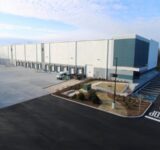By Joshua Burd
Amid growing criticism of the state’s incentive programs, a group of prominent business and labor associations are aiming to set the record straight in Trenton.
Known as the Smart Growth Economic Development Coalition, the group has sent a report to Gov. Phil Murphy and to lawmakers defending the Grow New Jersey program and other economic development incentives. Along with touting the programs’ impact on distressed areas and targeted industries, the analysis highlights the fact that the state does not issue any tax credits or subsidies until businesses prove that they’re holding up their end.
“The program requires participants to meet all employment or capital investment targets prior to receiving the tax credit,” the coalition wrote in memos to Murphy’s office and both houses of the Legislature. “In other words, all tax incentives are approved on a ‘conditional’ basis and no tax credits are actually received until the proposed projects are completed, and the required investment and employment is delivered and certified.”
The report also notes that the companies must deliver on their required investment and employment for a term of 15 years. If they fall short, the incentive amount is reduced proportionally or withheld altogether.
NJ Incentives FactsThe analysis comes in response to growing scrutiny about the business incentives and the roughly $8 billion worth of approvals granted under Gov. Chris Christie, who was in office from 2010 to early 2018. For his part, Murphy has criticized the incentives as being skewed toward large corporations and ordered an audit of the Economic Development Authority, which administers the programs, soon after he took office in late January.
But advocates say those programs are crucial to ensuring that New Jersey stays competitive with other states that are also offering incentives. Those backers include the coalition and member groups that were listed on the report sent to policymakers last week:
- International Council of Shopping Centers
- NAIOP New Jersey
- New Jersey Apartment Association
- New Jersey Builders Association
- New Jersey Business & Industry Association
- New Jersey Laborers Union
- New Jersey State Chamber of Commerce
- Operating Engineers Local 825
Incentives such as Grow New Jersey are performance-based and must have economic outcomes that equate to at least 110 percent of the amount awarded by the EDA, the report said. The analysis also found that since Grow New Jersey was expanded by legislation in 2013, it has resulted in 43 completed projects that are approved to earn some $841 million in tax credits over 10 years, with a net benefit to the state of about $2.3 billion over 15 years.
That represents a return on investment of $3.30 for every $1 of tax credits pledged, the coalition found, citing publicly available data from the state through last December. Those companies, which represent less than 20 percent of the approved projects since 2013, have produced 6,557 direct new jobs and 6,148 jobs that were deemed to be at risk of leaving the state, along with an estimated 1,500 construction jobs.
“After several months of looking at this data with other stakeholders it is evident that the Grow New Jersey program is panning out to be a success,” said Anthony Pizzutillo, principal of Pizzutillo Public Affairs, who is NAIOP New Jersey’s government affairs consultant. “What’s key is that everyone needs to not only fixate on the distribution of corporate business tax credits, but also to the fact that they have to be earned and that the rate of return is a significant win for New Jersey.”
Representatives for Murphy’s office declined to comment on the report, while a representative for the Senate majority office said lawmakers were tied up this week with the budget process.
The memo to policymakers also highlights 204 projects that are in the pipeline but have yet to be completed. Those businesses have received conditional EDA approvals for a maximum of nearly $4.6 billion in total over 10 years, with a combined net benefit to New Jersey that’s projected to be $12.1 billion over 15 years.
The projects are tied to commitments to create 23,545 new jobs and retain 29,710 at-risk jobs, the report said, along with 16,530 construction jobs. The return on investment amounts to $3.66 for every $1 of tax credit awarded, assuming those companies certify that they have kept their employment and investment commitments during the life of the award.
Coalition members have also vocally supported the idea of refining and scaling back Grow New Jersey, which sunsets in 2019. Those steps could include reducing overall tax credit amounts for most projects and locations, except for the most continually distressed areas that remain priorities.
They have also called for focusing incentives primarily on new jobs rather than retained positions, increasing the requirements for new employment and capital investment and expanding access to small businesses and rapidly growing technology companies.
Michael McGuinness, CEO of NAIOP New Jersey, said his organization “recognizes that the program needs to be flexible and attentive to ever-changing markets and demographics.” He added that the programs “have generated the potential for an impressive rate of return on jobs and revenues to both the state and our communities.”
As an example, he cited the nine municipalities that were represented among the chapter’s recent Deal of the Year finalists — Piscataway, Elizabeth, Perth Amboy, Logan, Lawrenceville, Whippany/Hanover, New Brunswick, Paramus and Parsippany. The communities will see an influx of more than 7,000 full-time jobs and close to another 4,000 construction jobs with the completion of the projects.
“Nearly all these deals utilized (payment in lieu of taxes) agreements with the towns or received state incentives under the Grow New Jersey or (Economic Redevelopment and Growth) programs,” McGuinness wrote in a recent column for Real Estate NJ. “Our decision makers in Trenton should take careful note of this.”










